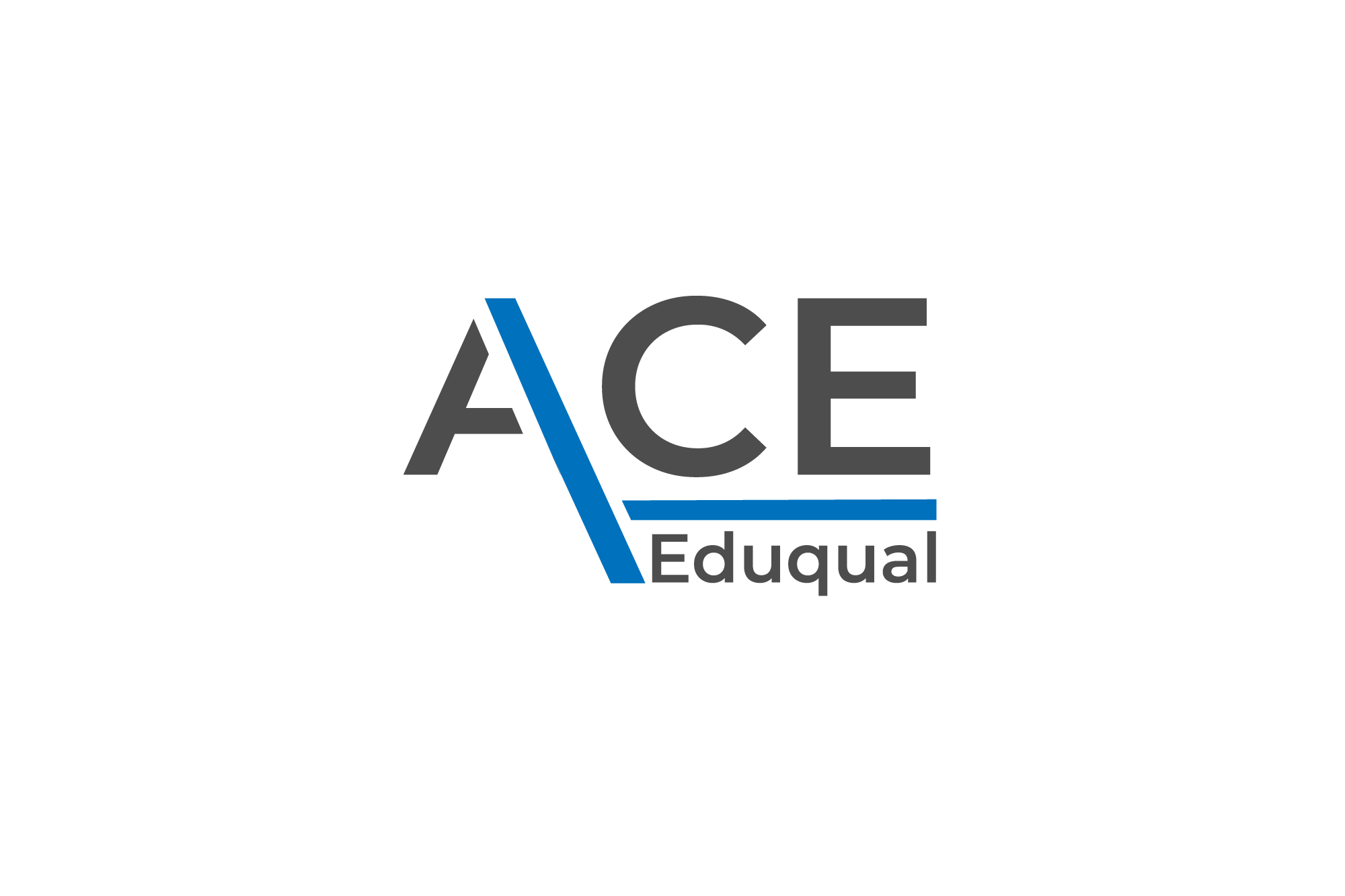Endocrinology

Endocrinology is a comprehensive course that explores the study of hormones and their role in regulating various physiological processes within the human body. This course delves into the intricate mechanisms underlying hormone synthesis, secretion, and action, as well as the impact of hormonal imbalances on overall health. Students will gain a deep understanding of endocrine glands and their specific hormones, including the hypothalamus, pituitary, thyroid, adrenal, pancreas, and gonads. The course will also cover the interaction between the endocrine system and other organ systems, such as the reproductive, cardiovascular, and metabolic systems. Through lectures, laboratory work, and case studies, students will develop the knowledge and skills necessary to diagnose and manage endocrine disorders effectively.
Our Endocrinology qualifications have been designed in collaboration with colleges, higher education institutions, and sector skills councils. They offer a pathway for individuals to progress to university degrees and cover Diploma Level- 3 to 7.
These qualifications provide the flexibility for learners to choose from a variety of optional units at each level. This allows them to specialize in specific areas while also gaining the essential core knowledge necessary for all managers or individuals.
- Understand the fundamental principles of endocrinology, including hormone synthesis, secretion, and regulation.
- Identify and describe the structure and function of major endocrine glands and their associated hormones.
- Explain the mechanisms of hormone action and the signaling pathways involved.
- Analyze the interplay between the endocrine system and other physiological systems.
- Evaluate the role of hormones in the regulation of various physiological processes, such as metabolism, reproduction, and growth.
- Recognize and interpret the clinical manifestations and laboratory findings associated with endocrine disorders.
- Develop skills in diagnosing and treating common endocrine disorders, such as diabetes, thyroid disorders, and adrenal dysfunction.
- Understand the principles and techniques of hormone replacement therapy.
- Critically appraise scientific literature in the field of endocrinology and stay updated with recent advancements.
- Apply ethical considerations when dealing with endocrine-related issues, including patient confidentiality and informed consent.
Upon successful completion of the Endocrinology program, graduates will have a diverse array of career opportunities in various fields associated with endocrinology and patient care. Potential career paths include endocrinologist, endocrinology nurse, endocrinology researcher, endocrinology educator, cosmetic endocrinologist, endocrinology clinic coordinator, endocrinology consultant, endocrinology specialist in hospitals or healthcare facilities, and endocrinology advocate.
Graduates can pursue employment in hospitals, healthcare institutions, endocrinology clinics, research institutions, non-profit organizations, private agencies, or choose to advance their studies in endocrinology at a higher level.
Course Details

Course Overview:
The Level 7- Post Graduate Diploma in Endocrinology is an advanced and specialized program designed to provide comprehensive knowledge and advanced skills in the field of endocrinology. This course is suitable for healthcare professionals, researchers, or individuals seeking to become experts in endocrinology and contribute to the advancement of the field. The Level 7 Diploma focuses on advanced research methodologies, critical analysis of scientific literature, and the development of innovative approaches to diagnose and manage complex endocrine disorders.
Equivalences:
The Level 7- Post Graduate Diploma in Endocrinology is equivalent to a Master’s degree program. It represents the highest level of qualification in the field of child health, providing learners with an advanced and specialized understanding of the subject.
Course Contents:
The course content of the Level 7- Post Graduate Diploma in Endocrinology typically covers a range of advanced topics. Here are the topics covered:
- Advanced Hormonal Signaling and Molecular Mechanisms
- Endocrine Disorders and Metabolic Homeostasis
- Genetic and Genomic Approaches in Endocrinology
- Precision Medicine in Endocrine Disorders
- Neuroendocrinology: Brain-Endocrine Interactions
- Advanced Reproductive Endocrinology: Fertility Preservation and ART
- Advanced Topics in Thyroid and Parathyroid Disorders
- Neuroendocrine Tumors: Pathogenesis and Targeted Therapies
- Novel Therapeutic Modalities in Endocrinology
- Endocrine Disorders and Pregnancy
- Endocrine Disorders and Aging: Implications and Management
- Bioinformatics and Data Analysis in Endocrine Research
- Advanced Research Methods in Endocrinology
- Dissertation or Research Project
- Ethical Considerations in Endocrinology Research and Practice
Assignment Criteria:
The qualification assessment criteria are based on assignments, but in order to pass, the learner must complete all of the unit’s learning requirements. At the completion of each unit, an interview will be held as proof that the work truly belongs to the learner.
Entry Requirements:
The specific entry requirements for the Level 7- Post Graduate Diploma in Pain Management: Strategies and Interventions include:
- A minimum age requirement (e.g., 22 years old)
- A complete Bachelor’s degree, UK level 6 diploma in Endocrinology or an equivalent overseas qualification.
- Completion of a MBBS degree or a related degree.
- English language proficiency, demonstrated through language tests or previous education in an English-speaking environment.
Course Duration:
The qualification has recommended course duration of 2 years.
Note: However the course duration may be increased to meet additional learning needs if required.

Course Overview:
The Level 3- National Diploma in Endocrinology is designed to provide a comprehensive understanding of endocrine disorders and their management. This course covers various aspects of endocrinology, including the structure and function of the endocrine system, hormone production and regulation, common endocrine disorders, diagnostic techniques, and treatment options. Students will gain knowledge of the physiological mechanisms underlying endocrine disorders and develop the skills required for their assessment and management. The course emphasizes the practical application of endocrinology principles in a clinical setting.
Equivalences:
The Level 3- National Diploma in Endocrinology is equivalent to an A-level qualification in the UK education system. It is also comparable to a Level 3 diploma or certificate in other international qualifications frameworks.
Course Contents:
The course content of the Level 3- National Diploma in Endocrinology typically covers a range of advanced topics. Here are the topics covered:
- Introduction to Endocrinology
- Anatomy and Physiology of the Endocrine System
- Hormone Production, Regulation, and Signaling
- Common Endocrine Disorders
- Diagnostic Techniques in Endocrinology
- Treatment Approaches for Endocrine Disorders
- Management of Diabetes Mellitus
- Endocrine Disorders in Children and Adolescents
Assignment Criteria:
The qualification assessment criteria are based on assignments, but in order to pass, the learner must complete all of the unit’s learning requirements. At the completion of each unit, an interview will be held as proof that the work truly belongs to the learner.
Entry Requirements:
The specific entry requirements for the Level 3- National Diploma in Endocrinology may include:
- A minimum age requirement (e.g., 16 years old)
- Completion of O-level/ 10th Standard or equivalent qualifications.
- Completion of a relevant Level 2 qualification in Endocrinology, Health Science or a related subject
- English language proficiency, demonstrated through language tests or previous education in an English-speaking environment.
Course Duration:
The qualification has recommended course duration of 1 year.
Note: However, the course duration may be increased to meet additional learning needs if required.
Course Overview:
The Level 4- Extended Diploma in Endocrinology is an advanced program designed to provide in-depth knowledge and skills in the field of endocrinology. This course builds upon the foundational concepts covered in lower-level qualifications and delves deeper into the complexities of endocrine disorders. Students will explore advanced topics related to hormonal regulation, pathophysiology of endocrine diseases, emerging therapies, and research advancements. The course emphasizes critical thinking, evidence-based practice, and the application of advanced diagnostic and treatment modalities in managing complex endocrine conditions.
Equivalences:
The Level 4- Extended Diploma in Endocrinology is comparable to the first year of an undergraduate degree program. It represents a higher level of qualification than a Level 3 diploma or A-levels, offering a more specialized and advanced understanding of Diploma in Endocrinology.
Course Contents:
The course content of the Level 4- Extended Diploma in Endocrinology typically covers a range of advanced topics. Here are the topics covered:
- Advanced Endocrine Physiology
- Endocrine Metabolism
- Anatomy and Physiology of the Endocrine System
- Hormone Biosynthesis and Regulation
- Pathophysiology of Endocrine Disorders
- Endocrine Pharmacology
- Endocrine Imaging Techniques
- Ethical and Legal Considerations in Endocrinology
Assignment Criteria:
The qualification assessment criteria are based on assignments, but in order to pass, the learner must complete all of the unit’s learning requirements. At the completion of each unit, an interview will be held as proof that the work truly belongs to the learner.
Entry Requirements:
The specific entry requirements for the Level 4- Extended Diploma in Endocrinology are included:
- Completion of A-level/ 12th Standard or equivalent qualifications.
- Completion of a Level 3 qualification in Endocrinology, Health Sciences or a related field.
- Minimum age requirements (usually 18 years or older).
- English language proficiency, demonstrated through language tests or previous education in an English-speaking environment.
Course Duration:
The qualification has recommended course duration of 1 year.
Note: However the course duration may be increased to meet additional learning needs if required.
Course Overview:
The Level 5- Higher National Diploma in Endocrinology is an advanced program that builds upon the knowledge gained in the Level 4 Diploma. This course provides a comprehensive understanding of the principles and advanced concepts in endocrinology, focusing on the intricate mechanisms of hormone regulation and the management of complex endocrine disorders. It is designed for healthcare professionals, researchers, or individuals seeking to expand their expertise in the field of endocrinology. Students will delve into topics such as molecular endocrinology, endocrine pharmacology, hormonal signaling pathways, and the latest advancements in diagnostic and therapeutic approaches.
Equivalences:
The Level 5- Higher National Diploma in Endocrinology is equivalent to the second year of an undergraduate degree program. It represents a higher level of qualification compared to Level 4 diplomas and provides a deeper understanding and expertise in the field of Endocrinology
Course Contents:
The course content of the Level 5- Higher National Diploma in Endocrinology typically covers a range of advanced topics. Here are the topics covered:
- Emerging Trends and Advances in Endocrinology
- Molecular Endocrinology: Genes, Proteins, and Hormone Synthesis
- Hormonal Signaling Pathways and Receptor Regulation
- Neuroendocrinology and the Central Nervous System
- Endocrine Pharmacology and Therapeutics
- Advanced Diagnostic Techniques in Endocrinology
- Metabolic Syndrome and Obesity
- Disorders of Calcium and Bone Metabolism
- Neuroendocrine Tumors and Carcinogenesis
- Reproductive Endocrinology: Infertility, Assisted Reproductive Technologies, and Menopause Management
- Research Methods in Endocrinology: Design, Data Analysis, and Publication
Assignment Criteria:
The qualification assessment criteria are based on assignments, but in order to pass, the learner must complete all of the unit’s learning requirements. At the completion of each unit, an interview will be held as proof that the work truly belongs to the learner.
Entry Requirements:
The specific entry requirements for the Level 5- Higher National Diploma in Endocrinology may include:
- A Level 4 diploma or year 1 of bachelor’s degree or any equivalent overseas qualification
- Minimum age requirements (usually 18 years or older).
- A Level 4 Diploma or equivalent qualification in Endocrinology, Health Sciences or a related field.
- English language proficiency, demonstrated through language tests or previous education in an English-speaking environment.
- In case of no formal university education, learners can gain entry on the basis of work experience. Learners having 3 years of work experience or more are eligible in case of no formal educational qualification.
Course Duration:
The qualification has recommended course duration of 18 Months.
Note: However the course duration may be increased to meet additional learning needs if required.
Course Overview:
The Level 6- International Diploma in Endocrinology is an advanced and specialized program that provides an in-depth understanding of complex endocrine disorders and their management. This course is designed for healthcare professionals, researchers, or individuals seeking to enhance their expertise in the field of endocrinology at an advanced level. Students will explore advanced topics such as hormonal regulation at the molecular level, cutting-edge research in endocrinology, personalized medicine approaches, and the integration of technology in endocrine diagnostics and therapeutics.
Equivalences:
The Level 6- International Diploma in Endocrinology is equivalent to the final year of an undergraduate degree program. It represents a higher level of qualification compared to Level 5 diplomas and offers a specialized and in-depth understanding of endocrinology.
Course Contents:
The course content of the Level 6- International Diploma in Endocrinology typically covers a range of advanced topics. Here are the topics covered:
- Molecular Mechanisms of Hormone Action
- Epigenetics and Endocrine Disorders
- Advanced Topics in Reproductive Endocrinology
- Disorders of Growth and Development
- Endocrine Oncology: Diagnosis and Management
- Endocrine Disorders in Aging and Geriatric Populations
- Autoimmune Endocrine Disorders
- Personalized Medicine in Endocrinology
- Advanced Endocrine Diagnostics: Biomarkers and Imaging Techniques
- Emerging Technologies in Endocrine Therapeutics
- Ethical Considerations in Endocrinology Research and Practice
- Dissertation or Research Project
Assignment Criteria:
The qualification assessment criteria are based on assignments, but in order to pass, the learner must complete all of the unit’s learning requirements. At the completion of each unit, an interview will be held as proof that the work truly belongs to the learner.
Entry Requirements:
The specific entry requirements for the Level 6- International Diploma in Endocrinology may include:
- A Level 5 diploma or year 2 of bachelor’s degree or any equivalent overseas qualification.
- Minimum age requirements (usually 20 years or older).
- Equivalent qualification in Endocrinology, Health Science or a related field.
- English language proficiency, demonstrated through language tests or previous education in an English-speaking environment.
- In case of no formal university education, learners can gain entry on the basis of work experience. Learners having 3 years of work experience or more are eligible in case of no formal university educational qualification.
Course Duration:
The qualification has recommended course duration of 18 Months.
Note: However the course duration may be increased to meet additional learning needs if required.
Course Overview:
The Level 7- Post Graduate Diploma in Endocrinology is an advanced and specialized program designed to provide comprehensive knowledge and advanced skills in the field of endocrinology. This course is suitable for healthcare professionals, researchers, or individuals seeking to become experts in endocrinology and contribute to the advancement of the field. The Level 7 Diploma focuses on advanced research methodologies, critical analysis of scientific literature, and the development of innovative approaches to diagnose and manage complex endocrine disorders.
Equivalences:
The Level 7- Post Graduate Diploma in Endocrinology is equivalent to a Master’s degree program. It represents the highest level of qualification in the field of child health, providing learners with an advanced and specialized understanding of the subject.
Course Contents:
The course content of the Level 7- Post Graduate Diploma in Endocrinology typically covers a range of advanced topics. Here are the topics covered:
- Advanced Hormonal Signaling and Molecular Mechanisms
- Endocrine Disorders and Metabolic Homeostasis
- Genetic and Genomic Approaches in Endocrinology
- Precision Medicine in Endocrine Disorders
- Neuroendocrinology: Brain-Endocrine Interactions
- Advanced Reproductive Endocrinology: Fertility Preservation and ART
- Advanced Topics in Thyroid and Parathyroid Disorders
- Neuroendocrine Tumors: Pathogenesis and Targeted Therapies
- Novel Therapeutic Modalities in Endocrinology
- Endocrine Disorders and Pregnancy
- Endocrine Disorders and Aging: Implications and Management
- Bioinformatics and Data Analysis in Endocrine Research
- Advanced Research Methods in Endocrinology
- Dissertation or Research Project
- Ethical Considerations in Endocrinology Research and Practice
Assignment Criteria:
The qualification assessment criteria are based on assignments, but in order to pass, the learner must complete all of the unit’s learning requirements. At the completion of each unit, an interview will be held as proof that the work truly belongs to the learner.
Entry Requirements:
The specific entry requirements for the Level 7- Post Graduate Diploma in Pain Management: Strategies and Interventions include:
- A minimum age requirement (e.g., 22 years old)
- A complete Bachelor’s degree, UK level 6 diploma in Endocrinology or an equivalent overseas qualification.
- Completion of a MBBS degree or a related degree.
- English language proficiency, demonstrated through language tests or previous education in an English-speaking environment.
Course Duration:
The qualification has recommended course duration of 2 years.
Note: However the course duration may be increased to meet additional learning needs if required.

